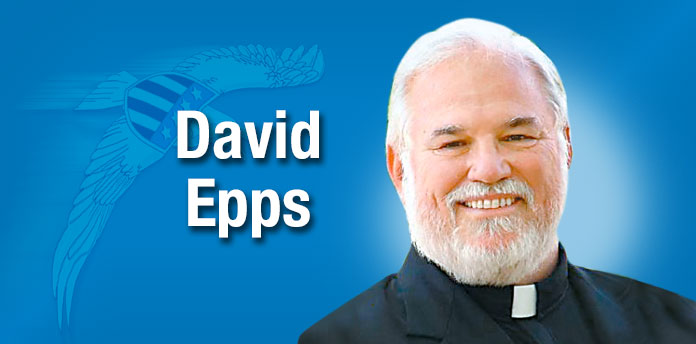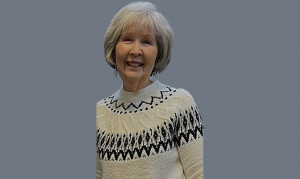A gentleman with whom I was acquainted, Raiford Smith, passed away this month. I knew he was a United States Marine veteran who had served in Vietnam, that he rode a motorcycle, that he was a Baptist, that he was a good friend of Jennings White (another good acquaintance and fellow Marine), and that he was a faithful and dependable member of the Local Marine Corps League detachment and held responsibilities in same.
I did not know how many children or grandchildren he had. I did not know that he graduated from Newnan High School or Georgia State University. Nor did I know that he had an interest in cars and sold them or that, later, he drove a school bus. I do know that he was friendly, easy-going, and that I liked him. Someone once said that “every life is a book, most of which will never be written.”
My father had an interesting if unsung life. He was the eldest of eight children, left high school at 17 to serve in the Navy in World War II, received his diploma after the war, and had a variety of early experiences. He worked in a shoe store, married my mother, sold insurance, was laid off from a paper plant, opened two small grocery stores and an antique store (all of which ultimately failed), had two sons, and all before the age of 30. He finally apprenticed to be an electrician and, much later, finished his work life in electronics.
Dad was a very curious man, interested in many things. He always regretted not going to college, but he was one of the smartest men I ever knew. In his spare time, he learned taxidermy, firearms repair, ammunition loading, sheet rocking, roofing, carpentry, masonry, outside and inside painting, and a host of other skills that enabled him to never, ever call a repairman or a handyman. He had a federal firearms license and probably sold or traded thousands of guns in his lifetime. Always able to draw, in his retirement he took classes on oil painting.
Still, there is so much about his life that is unknown to me. I know practically nothing about his childhood, teen years, military service, or even how he met my mother. By the time I wanted to ask, it was too late. His life will, in the main, always be an unwritten book.
I suppose mine will be the same. I have thought about writing memoirs or an autobiography, but I cannot imagine that over a dozen people would ever be interested in reading it, Although I find the stories, defeats, accomplishments, struggles, successes, and adventures and travels interesting, it is likely that few others would. Another book unwritten.
Many decades ago, I purchased a book entitled, “Memoir of Timothy Gilbert.” It was published in 1866 in Boston. It is a hardback in good condition with a green cover and gold lettering on the spine. I have never read it. I bought it because it was old (158 years old at this writing) and only cost $2.50 in a dusty used bookstore. I am thinking about reading it now that I have remembered it. I wonder what Mr. Gilbert would think of that now?
Of all the billions of people who live, or have ever lived, on this planet, most have been forgotten, even by their families, in a generation or two. My father had a large, framed photograph of a married couple in our basement for years. I always thought it was a holdover from the antique store days and finally asked him what he didn’t get rid of it.
It was only then, as an adult with a family of my own, that I was introduced to my great-great-grandfather, Alexander Epps and his wife Barbara Epps, nee Heck. Thanks to modern technology and genealogical searches, I know something about both of them, but the knowledge is very limited. Unwritten books once again.
I’m not even certain that many people even read traditional books anymore. I talked to a high school representative recently about my giving books to their school library only to be informed that the school no longer has a library. But such is the way of things. We no longer have scrolls either, except in a museum or a collection. Perhaps the same will eventually happen with books too.
In “Star Trek: The Next Generation,” set in the 24th Century, there are no books there either. Only Captain Picard seems to find enjoyment in laying aside the technology for a time during his rare moments of relaxation to pick up and read an ancient book — a real one, made of paper and ink.
If this seems lamentable, it really is not. Where would we even put the eight billion books if everyone living penned an autobiography? Life is for living and for remembering. My father lived a life that I admire and respect and, though I would love details about his life and my mother’s, what I do know is that I watched much of their lives play out before me and teach and influence me.
And while, unlike Timothy Gilbert, there will not be my biography written. My lasting legacy will be in the family that I leave behind, in the future generations they leave behind, and in the people that I have known in this life that I have had and continue to have.
So, while the book of my life shall remain unwritten, it is not what matters. What matters is that I have lived, and continue to love, my life at all. That I have loved, and struggled, and laughed and cried, and overcome, and have experienced, not a book, but life. I know my story. Moreover, God has always known and been at the very center of my story. And that is enough.
[David Epps is the Rector of the Cathedral of Christ the King (www.ctk.life). Worship services are on Sundays at 10:00 a.m. and on livestream at www.ctk.life. He is the bishop of the Diocese of the Mid-South (www.midsouthdiocese.life). He may be contacted at [email protected].]












Leave a Comment
You must be logged in to post a comment.